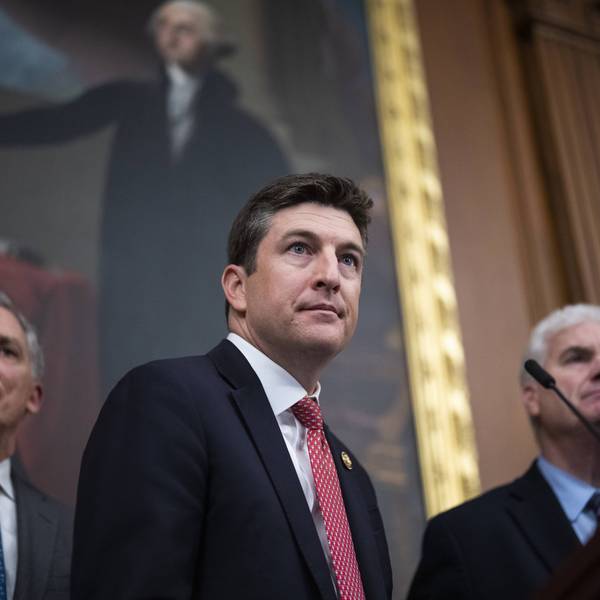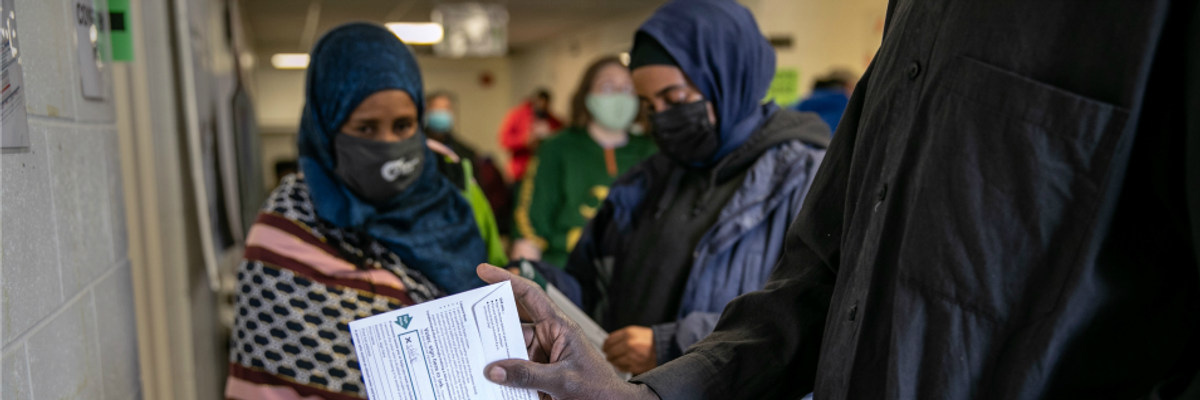As the final day of voting in the 2020 election approached, the ACLU on Monday left American voters with a closing argument: "Everyone should be able to vote, and every vote should be counted."
The simple, pro-democracy message was deemed necessary by the national civil liberties organization in a year when President Donald Trump has undermined Americans' ability to vote by mail; federal and state courts have stood in the way of voters who want to cast their ballots early; and the president has repeatedly indicated that he will not accept the election results if he loses and will call for officials to stop counting votes on election night, potentially before millions of legally-cast ballots are tallied.
Last week, the ACLU released a statement detailing its plans to protect voters' right to cast ballots in person, at a drop box, or via mail.
"Just as we've been asking our supporters to make a plan to vote, we at the ACLU have been preparing for months and years for this Election Day: activating volunteers, motivating voters, and fighting for our rights across the country in courts, legislatures, and in the streets," wrote managing attorney Sarah Brannon and voting rights campaign strategist Molly McGrath.
Brannon and McGrath wrote that the organization is working closely with election protection lawyers and volunteers to ensure no voter faces disenfranchisement or intimidation at the polls.
"The ACLU is at the ready to act swiftly and use all of the tools and resources at our disposal to protect the vote," they wrote. "If you have questions about casting your ballot or difficulty voting, remember you have the right to vote and help is a phone call away at 1-866-OUR-VOTE."
The group also released a short audio guide to familiarize voters with what they may face at the polls if they vote in person on Tuesday, including long lines, poll workers who will be able to assist voters who are vulnerable to severe Covid-19 infections and don't want to wait in a large crowd, and possible voter intimidation.
"Voter intimidation is very rare, but, know how to spot it," McGrath told listeners. "No one should make you feel unsafe or interfere with your casting a ballot. Remember, you have the right to vote. No one can impersonate an election official or aggressively question you."
The guide also reminded voters that they should expect a ballot-counting process which stretches past election night this year.
"We likely will not know a winner on election night as more people have cast absentee ballots this year than ever before," McGrath said. "Remember: Some states don't even start counting these ballots until Election Day."




